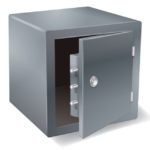 Whether it’s the secret recipe for your gourmet cupcakes or a unique process for manufacturing your best-selling product, trade secrets are valuable company assets. When an employee leaves, there’s a risk they will take your trade secrets with them to a competitor or to start their own business. So what relief is available if you’re a victim of trade secret theft? Hawai‘i companies already can seek relief from the Hawaii Uniform Trade Secrets Act, but now there’s another tool to combat trade secret theft. On May 11, 2016, President Obama signed the Defend Trade Secrets Act (DTSA) into law, which adds a federal layer of protection for trade secrets.
Whether it’s the secret recipe for your gourmet cupcakes or a unique process for manufacturing your best-selling product, trade secrets are valuable company assets. When an employee leaves, there’s a risk they will take your trade secrets with them to a competitor or to start their own business. So what relief is available if you’re a victim of trade secret theft? Hawai‘i companies already can seek relief from the Hawaii Uniform Trade Secrets Act, but now there’s another tool to combat trade secret theft. On May 11, 2016, President Obama signed the Defend Trade Secrets Act (DTSA) into law, which adds a federal layer of protection for trade secrets.
Here are the highlights of the new law:
What does DTSA do? The DTSA creates a new federal remedy for trade secret misappropriation. Prior federal trade secrets law only criminalized certain misappropriations of trade secrets. The DTSA allows victims of trade secret misappropriation to sue in federal court.
Is the DTSA my exclusive remedy? No. The DTSA creates a national standard of trade secret law and gives you more options for seeking relief, but it doesn’t pre-empt state law. You may still take advantage of trade secret protections under state laws like the Hawaii Uniform Trade Secrets Act.
What’s so special about the DTSA? One feature of the DTSA is that it allows a court to grant an “ex parte seizure order.” This new remedy lets trade secret owners seek a court order to seize allegedly stolen trade secret items in the accused wrongdoer’s possession without first giving them notice. Seizure orders are granted only in “extraordinary circumstances.” To safeguard against abuse of seizure orders, the DTSA entitles victims of wrongful seizure to damages, punitive damages in cases of bad faith, and attorneys’ fees. It remains to be seen how courts will apply the ex parte seizure provisions of the DTSA and how often the remedy will be used.
What do employers need to know about the DTSA? Injunctive relief granted under the DTSA may not “prevent a person from entering into an employment relationship” and must be consistent with state law “prohibiting restraints on the practice of a lawful profession, trade, or business.” In other words, the DTSA does not override state law governing non-compete covenants. Claims under state law may need to be included in the lawsuit to enforce non-compete provisions in an employment agreement.
The DTSA also provides immunity for whistleblower employees (which the DTSA defines broadly to include independent contractors and consultants) who disclose trade secrets to any government official solely for the purpose of reporting or investigating a suspected violation of law or in a court filing made under seal. Notice of the whistleblower immunity provisions must be given in every agreement entered into after May 11, 2016 that restricts the employee’s use of a trade secret or other confidential information. The notice requirement may be satisfied by referencing the immunity provisions in a policy document (like an employee manual) rather than inserting the provisions into each employment agreement.
For more specific information on how the DTSA affects you, consult experienced legal counsel.



